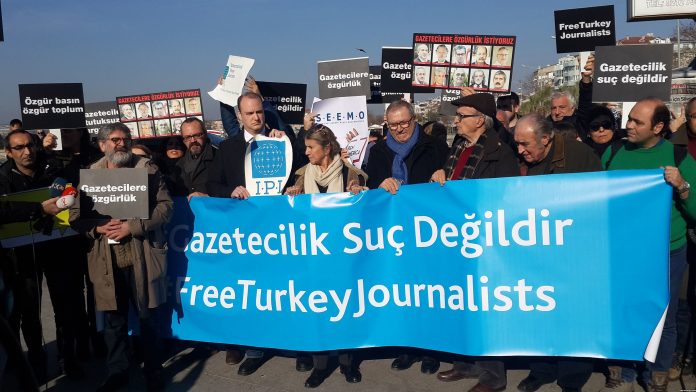Turkey has survived a brutal coup attempt in the summer of 2016. The putschists failed to take control of the country and the government has remained in power. Hundreds of people including civilians and soldiers were left dead and thousands injured during the riot which is still controversial to many observers because of the contradictory accounts of the government members, top military officials and prime suspects. It is also very much controversial what has happened in its aftermath. Immediately after President Erdogan said “This is a gift upon us from God” on the very early hours of the coup attempt, thousands of public officials including over two thousand judges have been dismissed. It was the sign of the future waves of brutal persecution which will target every dissident in the country regardless of their actual connection with the coup attempt.
Not only dismissals of over a hundred thousand people was the whole issue that bothers the independent Turkey observers. Much bigger and wider rights violations have been reported so far by various international and domestic organizations. The government started a quasi-Nazi witch hunt against its dissidents by prosecuting, arresting, imprisoning, torturing, kidnapping and condemning them to civil death if they survive. Of over a hundred thousand dismissed public servants, thousands of academics and teachers, thousands of judges, doctors, hundreds of journalists, more than a dozen pro-Kurdish politicians, rights defenders and philanthropists have been imprisoned. Since the judiciary in Turkey has literally become an extension of the government, waves of complaints have reached the European Court of Human Rights in Strasbourg.
The Strasbourg Court has failed to provide a remedy for the applicants so far for questionable reasons. First, it rejected applications of dismissed public servants referring to a Commission established in the summer of 2017. Even before the Commission was formed, many law experts severely criticized the working principles of it for it will not be capable of handling a large number of cases effectively nor independently from the government’s influence. Indeed, the outcome of the Commissions work in almost one year proved that the criticisms were right. In one year, the Commission has examined only 17000 cases and reinstated only 660 of them to their jobs. Nearly 90.000 files are still awaiting to be handled before the Commission. Keep in mind that the Commission is allowed only to decide to reinstate or not based on a behind desk examination. There is no hearing or communication with the applicants for further explanation of self-defence. Further criticisms can be found here.
After rejecting nearly 27000 cases referring to the abovementioned sham commission, the Court made another weird decision. A judge who was arrested in the aftermath of the coup attempt had been held in solitary confinement for months which is a breach of all international and domestic legal regulations. Only those who are convicted to heavy life sentence can be put in prolonged solitary confinement under certain conditions according to the Turkish Law on the Execution of Penalties. Bora, the applicant was not convicted at the time, but he was only in pretrial detention. Other causes listed by the law such as posing a threat to other inmates and setting riot in prison are not relevant to the applicant’s case. Even if they were, the law limits the duration of cell punishment with 20 days in such circumstances. Despite all of these facts and the various reports showing that there are severe rights violations in Turkish prisons including torture and ill-treatment, the ECtHR gave the green light to the government to hold thousands of people in arbitrary cell punishment by rejecting Bora’s application.
On top of these, the Court recently found an application of the victims of Roboski Massacre inadmissible. The Court stated that the domestic legal avenues had not been exhausted properly. With this, the court refers to a two days delay of delivering relevant documents to the Constitutional Court. Turkish rights defenders have expressed their frustration the meaningless formalism of the Court in a way that favours the controversial relationship of the CoE leadership with the Turkish government over the right to life, the most fundamental right, of the victims and their families.
Responding to criticisms, Daniel Holtgen, spokesperson of the Secretary-General of the Council of Europe, tweeted that such criticisms are “ill-informed” and “counterproductive”. He also announced that a more elaborated explanation will be released. Although it is inappropriate for him to speak for the Court which must be independent of the executive bodies especially accusing the critiques of ill-informed and threatening them for facing counterproductive results, the rights defenders and law experts who follow the Court expressed their excitement(!) to hear a detailed explanation of the Court’s attitude toward the post-failed coup victims of Turkey.
Dr Ugur Tok is the Director of Platform for Peace and Justice in Brussels, http://www.platformpj.org/

